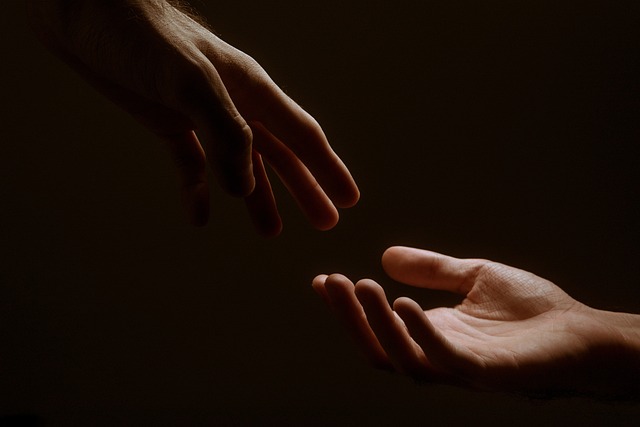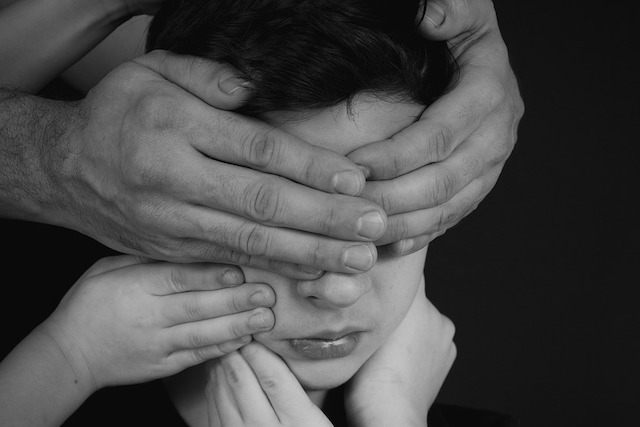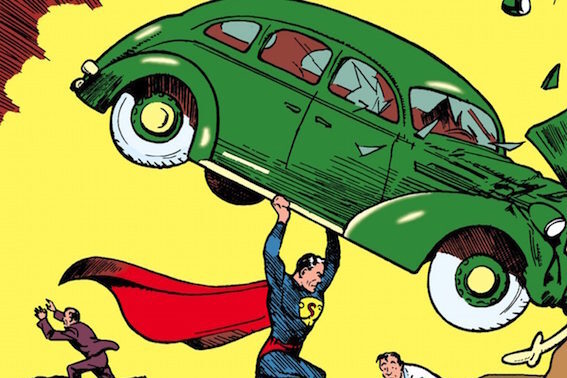10 Strange Punishments That Seem Way Too Harsh
“If You Can’t Do the Time, Don’t Do the Crime”: Why This Old Saying Still Hits Hard Today
The phrase “If you can’t do the time, don’t do the crime” might sound like something out of a gritty old detective movie, but it carries a message that’s as relevant as ever—and surprisingly layered when you think about it. On the surface, it seems simple: if you break the rules, be ready to face the punishment. Fair enough, right?
But here’s where it gets interesting.
Sometimes the consequences of a seemingly small act can spiral into something way more severe than you’d expect. Think about how someone could end up in jail for what they thought was a minor prank—only to discover later that local laws treat it as a felony. This isn’t just about fear-mongering. It’s a real-world lesson in unexpected outcomes and how society assigns value (and penalties) to actions. It makes you wonder: Is justice always proportional?
In fact, many people don’t realize just how uneven the legal playing field can be until they—or someone close to them—find themselves tangled in it. This isn’t something exclusive to hardened criminals either. From cyber trespassing to taking a harmless-looking souvenir from a national park, the range of actions that can land you in trouble is surprisingly wide.
That’s why, if you ever find yourself tempted to “bend the rules just a little,” it’s worth pausing to ask: what’s really at stake? Laws don’t always work the way we assume. The reality is, legal systems—and their punishments—are often shaped by historical quirks, political shifts, or even public opinion trends.
10. Think Twice Before Pocketing That Bald Eagle Feather — It Could Land You in Prison

It might sound like something out of a legal drama or a bizarre trivia quiz, but here’s a wild truth: picking up a bald eagle feather could get you arrested. Yes, even if it’s just lying on the ground, shimmering in the sunlight like a national treasure—because in the eyes of the law, that’s exactly what it is.
The bald eagle, a bird etched into the heart of American identity since 1782, isn’t just a majestic symbol—it’s fiercely protected by legislation. Back in 1978, it was officially listed as endangered, sparking decades of aggressive conservation efforts. By 2007, those efforts had paid off—the bird was removed from the endangered list, no longer even classified as threatened. Sounds like a success story, right? It is—but it came with strict and surprising consequences.
Under the Bald and Golden Eagle Protection Act of 1940, not only is it illegal to hunt or kill these birds, but also to possess any part of them, including feathers, nests, and eggs. And here’s where things get unexpected: even owning a single feather—no matter how innocently found—can be considered a federal offense.
While the law was originally designed to combat poaching and trafficking, its language is strikingly clear: “take,” “sell,” and “possess” are all included. The punishment? A fine up to $100,000, a year behind bars, or both for a first offense. And yes, that applies even if you didn’t pluck the feather yourself.
There is one exception—members of federally recognized Native American tribes are legally allowed to own bald eagle feathers for specific ceremonial and cultural uses. These permissions are tightly regulated and must be applied for through official eagle feather repositories.
Now, don’t panic if you’ve ever casually admired a feather you saw on a hiking trail. You’re unlikely to be cuffed for that moment of wonder. But if you take it home, display it, or refuse to return it when asked, you could be setting yourself up for legal trouble you never saw coming.
It’s one of those incredible-but-true legal facts that remind us just how seriously certain symbols—and species—are protected in the U.S. You don’t have to be a criminal mastermind to break the law; sometimes, all it takes is an innocent gesture and a beautiful feather on the forest floor.
Want more surprising legal facts and stories from the edge of the unbelievable? Explore our other articles on strangest banned items or unusual ways people got arrested.
9. Thai Cops and Their “Unique” Punishment: Hello Kitty Armbands

If you’ve ever thought about creative punishments for breaking rules, Thailand’s police force might have a surprising approach. Forget long lectures or hefty fines—in some cases, officers caught breaking rules are handed bright pink Hello Kitty armbands. Sounds quirky, right? Let’s dive into this unusual disciplinary practice.
The Logic Behind the Armband
The idea stems from the belief that public humiliation can serve as a deterrent. Think about classic punishments like The Scarlet Letter, where societal shame was meant to discourage bad behavior. While psychologists debate its effectiveness—especially on kids—Thailand’s police force seems to think it works for adults.
When a police officer is caught littering, parking illegally, or violating other small rules, they’re assigned ”desk duty” while wearing the infamous Hello Kitty armband. The rule-breaking cop must keep it visible while on duty, letting their colleagues see and subtly judge their mistake.
The twist? They’re not required to wear it in public—just among coworkers. The embarrassment comes from being singled out in their own workspace, not from public shaming.
Why Choose Hello Kitty?
The choice of Hello Kitty isn’t random. The cute, cheerful character adds a layer of irony and humor, making the punishment more noticeable yet less overtly harsh. It’s a lighthearted way to enforce discipline without resorting to extreme measures.
But does it work? Experts are divided. Some argue that humiliation can backfire, leading to resentment rather than reform. Others believe it can be effective in small, non-violent infractions—a modern twist on old-school shame penalties.
Is This Really Effective?
Critics might say the punishment is more novel than corrective, but supporters argue it keeps police accountable in a way that doesn’t damage careers. After all, wearing a Hello Kitty armband is embarrassing, but it’s far from career-ending.
What do you think? Is this a creative way to maintain discipline, or does it cross the line into unfair humiliation? Share your thoughts and let’s discuss!
8. When Obedience Turns Deadly: The Tragic Law That Let a Thai Queen Drown

It’s one of those haunting stories that sounds almost too surreal to be true—a tale where strict tradition and unwavering loyalty to the law ended in a tragedy that shook an entire nation.
In 1880, Thailand—then known as Siam—was a kingdom governed not only by monarchy, but by deep reverence for its royal family, to the point that certain laws were quite literally untouchable. One such law forbade anyone from physically contacting a member of the royal family—even in an emergency—under penalty of death.
That rule became a cruel reality on a fateful day when Queen Sunandha Kumariratana was traveling with her daughter by boat. As the vessel made its way across a river, it capsized in the strong current. There were guards and attendants nearby, fully capable of helping—but no one moved. Not a single soul dared reach out a hand.
Why? Because touching royalty was considered a capital offense. Even a life-saving gesture could be punished by execution. The weight of tradition froze everyone in place, and as a result, the queen and her daughter drowned before their very eyes.
When King Rama V learned of the tragedy, he was devastated—and furious. He imprisoned those who stood by and watched, despite their obedience to the law, and swiftly abolished the rule, ensuring such a loss would never happen again.
This isn’t just an obscure historical anecdote. It’s a sobering reminder of how laws, even those meant to honor and protect, can become dangerous when followed without question. It challenges the idea that blind respect for tradition is always noble—and shows that sometimes, questioning authority isn’t rebellion; it’s survival.
The story of Queen Sunandha remains one of Thailand’s most incredible historical events, and a chilling example of how cultural reverence can have fatal consequences when it outweighs basic human instinct.
Curious about other strange or forgotten laws that led to real-life disaster? Check out our collection of unbelievable legal blunders and bizarre historic events.
7. The Shocking Reality: Suicide Attempts Criminalized in Many Countries

When someone attempts suicide, most people instinctively see it as a cry for help—a desperate response to mental health struggles, often rooted in depression or trauma. Ideally, survivors should receive compassionate care, access to mental health professionals, and support to address the underlying causes of their distress.
But here’s the shocking twist: in many parts of the world, suicide isn’t just treated as a public health issue—it’s considered a crime. Yes, you read that right. People who survive suicide attempts can face arrest, detention, or even imprisonment.
The criminalization of suicide isn’t a new phenomenon. In 13th-century England, suicide was deemed a felony. If someone took their own life, their family could be punished, and their possessions were seized by the government. It was a harsh, unforgiving system that viewed self-harm as a crime against society.
Fast forward to the 1950s, and Britain still classified suicide attempts as illegal acts. While few offenders were actually jailed, the stigma persisted. Thankfully, England eventually decriminalized suicide in the 1960s, recognizing it as a mental health issue rather than a criminal offense.
But not everyone followed suit.
In many countries, suicide remains a punishable offense. Take the Bahamas, for example—one of the strictest nations on this issue. If someone survives a suicide attempt, they can face life imprisonment. Yes, you heard that correctly: life in prison for trying to take their own life.
Other countries with harsh laws include Singapore, where suicide attempts are still technically illegal, though enforcement is rare. In India, attempted suicide was decriminalized only in 2018, after years of debate. Even in the United States, some states have laws that could lead to criminal charges in certain circumstances, such as if the attempt involves endangering others.
Proponents of these laws often argue that making suicide illegal deters people from taking their own lives. However, critics point out that criminalization can discourage individuals from seeking help, fearing stigma or legal consequences.
Mental health experts emphasize that suicide is rarely a choice but rather a symptom of untreated mental illness, such as depression, anxiety, or PTSD. Instead of punishing survivors, they argue for better access to mental health resources and support systems.
While some countries are moving toward decriminalization, others cling to outdated laws that only deepen the suffering of those in crisis. The stigma surrounding mental health remains a significant barrier, and harsh punishments only exacerbate the problem.
If we want to reduce suicide rates, the focus should be on compassionate care, not criminal charges.
6. The Animators Who Got “Shreked”: A Strange Punishment at DreamWorks

When you think of workplace punishment, images of formal warnings or maybe a stern HR meeting come to mind. But back in the early days of DreamWorks Animation, punishment took on a hilariously bizarre twist—you were sentenced to work on Shrek.
Yes, you read that right. In what might be one of the most unexpected behind-the-scenes tales from Hollywood’s animation world, being assigned to the now-iconic Shrek wasn’t always a dream job—it was a form of internal exile.
In the mid-1990s, DreamWorks was still a fresh studio. Its flagship project at the time was The Prince of Egypt, a traditionally animated biblical epic. Animators who underperformed or made noticeable mistakes during its production were quietly reassigned to a secondary project—a scrappy, troubled film called Shrek. The move became so infamous within the studio that the term “getting Shreked” was coined.
Why the stigma? At the time, Shrek was viewed as an ugly duckling—a project with no clear direction, a tiny budget, and a chaotic production environment. The script was a mess. Animators were crammed into a dingy warehouse. The lead character’s design changed frequently, voice actors were swapped, and most of the team were fresh graduates just trying to survive in the studio trenches. The project dragged on for years, and morale was low.
Nobody imagined the film would become the smash hit it eventually was. In 2001, Shrek not only launched a blockbuster franchise, but also redefined CGI animation and won the very first Academy Award for Best Animated Feature.
Ironically, what began as punishment became a career-defining moment for many of those animators. Today, Shrek is celebrated as a cultural phenomenon—a film that broke the mold, poked fun at fairy tales, and proved that even the most troubled projects can make cinematic magic.
It’s a great reminder that sometimes, what feels like a dead-end assignment might just be your biggest opportunity in disguise.
5. At Oxford, Breaking the Rules Might Just Get You a Pint of Beer

When you hear “discipline” at a world-class university, you probably picture warnings, academic probations, or maybe a professor’s disappointed glare. But at Oxford University, a place steeped in centuries of tradition, there’s a far more unconventional penalty for stepping out of line: you might have to drink a pint of beer.
This curious form of punishment is known as sconcing, and it’s about as delightfully British as it sounds. Originating as far back as the 1600s, sconcing was once a formal response to breaches of academic or social etiquette—things like mispronouncing Latin, speaking out of turn, or (back then) the scandalous act of mentioning women in certain contexts. (Oxford traditions and rituals)
Traditionally, the guilty party was compelled to drink an entire pint of ale, often in front of their peers. But the practice evolved into a ritualistic drinking game that feels like a scholarly version of “Never Have I Ever.” One student might call out an offense—say, “Anyone who skipped morning chapel!”—and all guilty parties would have to raise their glasses and drink.
Sconcing isn’t just about the beer; it’s about bonding through tradition, shared laughter, and a bit of structured chaos. While not officially endorsed by modern university policies, echoes of sconcing persist in some college common rooms as a form of cultural heritage rather than actual punishment.
The irony? At an institution known for producing some of the sharpest minds in the world, one of the mildest infractions could still end with someone chugging a drink in front of a candlelit hall full of scholars.
4. The Bizarre Case of a Teen Tried as an Adult for Selfie – Related Charges

Hey there! Today, I’m going to share with you a really strange and somewhat unbelievable story that will make you question the boundaries of the law. You might have heard a lot about the dark side of the digital world, especially when it comes to child pornography. It’s a serious issue that has led to the formation of entire task – forces and cyber – crimes units around the globe to combat it. And make no mistake, it’s something that absolutely needs to be addressed. But sometimes, as you’ll see, the way these cases are handled can leave you scratching your head.
Let’s turn our attention to North Carolina, where a 17 – year – old boy found himself in a most unusual legal predicament. He was tried as an adult for possessing nude photos of a minor. Now, here’s the kicker – that minor was none other than himself! These weren’t some random, illicit images he had stumbled upon. They were self – ies he had taken when he was 16. In a desperate attempt to avoid the harsh consequences, such as being placed on a sex offender list and facing jail time, the boy opted for a plea deal.
The charges against him were quite complex. He faced four counts of making and possessing images of himself and one count of having a photo of his girlfriend, who was the same age as him. What’s even more mind – boggling is that his girlfriend was also charged, and she too accepted a similar plea deal. In both of their cases, they were simultaneously the adult perpetrator and the minor victim of the same so – called crime.
This isn’t an isolated incident either. Back in the day, a 15 – year – old girl in Ohio was facing similar charges. And if you think that’s all, the FBI has several other similar examples in its files.
This case really makes you wonder about the fairness and the flexibility of the law. Should a teenager be treated as an adult just for taking and possessing selfies, even if they are of themselves? And how do we balance the need to protect minors from the harms of child pornography with the unique circumstances of these cases?
3. George R. R. Martin Was Labeled a “Coward for Life” — But Not for Anything in Westeros

Before he created the blood-soaked epic of Game of Thrones, George R. R. Martin faced a much more personal conflict — one rooted in real-world politics rather than fantasy kingdoms. Back in the 1960s, as the Vietnam War escalated and the U.S. government ramped up the draft, thousands of young Americans were forced to make one of the most difficult choices of their lives: go to war, flee the country, or resist the draft.
Martin chose resistance — but not in silence or rebellion. He applied for conscientious objector status, a legal designation for those who oppose war on moral or religious grounds. According to Martin himself, the request was approved almost immediately, which is rare in cases that often took months or years to process.
But there was a cost. He wasn’t imprisoned, nor exiled. Instead, the draft board handed down a different kind of punishment — one that targeted his reputation rather than his body. As Martin recalls it, they told him: “We’re going to let you go… but we will consider you a coward for life.”
That phrase — equal parts bureaucratic dismissal and psychological scarlet letter — stuck with him. But considering his later success as a globally recognized author, the label doesn’t seem to have slowed him down. In fact, fans might say it’s ironic that the man who brought to life some of fiction’s bravest warriors and bloodiest battles once bore the mark of so-called cowardice in real life.
Martin’s story is a sharp reminder that not all punishments leave visible wounds—and that the lines between courage and fear are often drawn by those in power.
2. Schools Have Taken Canes from Blind Students — And Replaced Them with Pool Noodles

When we think about education, we often imagine nurturing environments built to support every child’s unique needs. But reality, as it often does, veers into the absurd — even the heartbreaking. In more than one documented case, schools have chosen to discipline blind students by taking away their canes — the very tools they rely on to navigate the world.
In one particularly baffling incident in Kansas City, an 8-year-old boy — blind since birth and born without eyes — had his white cane confiscated by school staff. His “offense”? A bus driver claimed he was using the cane inappropriately, swinging it and potentially hitting someone. However, those who knew the child noted he often fidgets and gestures with his cane, a harmless and natural behavior for someone who relies on touch and spatial movement to understand his environment.
As a form of punishment, school officials didn’t just take the cane — they replaced it with a pool noodle. Yes, an actual foam pool toy. Imagine being blind and trying to walk through a hallway using a floppy stick meant for swimming. Not only is this dangerously impractical, but it sends a cruel message: your disability tool is treated like a toy.
This isn’t an isolated story. Across the Atlantic in the United Kingdom, a blind student was prohibited from using her cane at school entirely. The reasoning? The school feared it could be a “tripping hazard” for other students. Rather than educating classmates or making minor accommodations, the school chose exclusion.
These incidents raise disturbing questions: How far should discipline go before it becomes discrimination? And what happens when authority figures punish vulnerability instead of supporting it?
If you’re shocked, you’re not alone. Advocacy groups and parents have spoken out, demanding that schools uphold basic accessibility rights rather than undermining them.
This is one of those rare but sadly real stories where the punishment isn’t just unjust — it borders on the unbelievable.
1. Mississippi Didn’t Make Selling a Child Illegal Until 2009 — Seriously

Some laws are shockingly outdated. Others are so absurd you assume they must be urban legends. But this one is real — and disturbingly recent.
Until 2009, the state of Mississippi had no law on the books that made it illegal to sell a child. Not neglect, not trafficking — literal sale. It took a jaw-dropping case in 2008 to expose the gap in the legal system.
That year, a woman was caught trying to sell her granddaughter for $2,000 and a used car. You’d assume the law would come down hard, but prosecutors were left stunned. There was no specific statute under which to charge her for selling the child. Instead, she was only punished for an unrelated probation violation.
The case gained national attention and rightfully sparked outrage. The result? Lawmakers rushed to pass new legislation — finally criminalizing the sale of children in Mississippi. But the fact that it took until 2009, well into the 21st century, is enough to make your jaw hit the floor.
Even more unsettling? There’s still no broad federal law in the U.S. that explicitly prohibits the sale of children for non-sexual reasons — such as black market adoptions or trafficking for labor. Existing laws mostly focus on sex trafficking, leaving significant loopholes in cases that don’t involve commercial sexual exploitation.
This isn’t just a footnote in legal history — it’s a stark reminder that justice systems can fail in ways we never expect, sometimes for far too long.

























